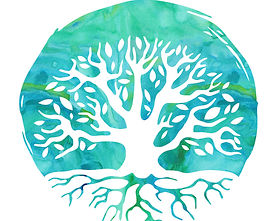top of page

6636 E. Carondelet Dr.
Tucson, AZ 85710
phone: 520.298.3383
fax: 520.207.5475
CALLIE PEDIATRICS
Caring for families since 1973
Hours: M-F 8 am-5 pm
Map & Directions
Developmental Delay and Autism
"Skills such as taking a first step, smiling for the first time, and waving “bye bye” are called developmental milestones. Children reach milestones in how they play, learn, speak, act, and move (crawling, walking, etc.)" --CDC
1. At each well-visit (through our pre-visit questions, talking with you, and observation), we assess how your baby is reaching "developmental milestones." We also encourage parents/caregivers to observe and track your baby's progress with the help of tools provided by the CDC (app tracker, videos) and to learn more about how babies are "born to learn," and the importance of "responsive cues."
2. SCREENINGS:
"AGES and STAGES" (ASQ-3). Online developmental questionnaires (through CHADIS/Patient Portal) at 2,4,6,9,12,15,18,24,30, & 36-month visits. See: CHADIS: WHY
"MCHAT": MCHAT=MODIFIED CHECKLIST FOR AUTISM IN TODDLERS
At the 18 & 24-month visits.
AzEIP Your child may also be referred to the Arizona Early Intervention Program (AzEIP). AzEIP will then schedule a time to assess your child. (AzEIP helps families to obtain free therapeutic and support services for babies and toddlers with developmental delays, regardless of income level, up to age three. Usually they have to be at least 50% delayed).
3. Zero-to-three: delays: When we have concerns about development, your child may be referred to Speech, Occupational, or Physical Therapy. We also strongly recommend parents/caregivers forcus on at-home strategies:
CLICK HERE
If 50% or more delayed: AzEIP refers your baby/child for in-home therapies (speech, occupational, physical).
If less than 50% delayed: We can submit referrals for speech, occupational, and physical therapy through your insurance and and Parents-as-Teachers (special needs)
3. Over three years:
If your child has speech or other delays and difficulties (behavior, cognitive, motor, etc), we refer you to CHILD FIND, which evaluates your child for services through your local school district (therapy, preschool, etc).
Child find is a component of the Individuals with Disabilities Education Act (IDEA ’04) that requires Public Education Agencies (PEA) to locate, identify, and evaluate all children with disabilities, aged birth through 21, located within their boundaries of responsibility who are in need of early intervention or special education services.
TUSD Child FIND
AMPHI CHILD FIND
CATALINA FOOTHILLS CHILD FIND
SAHUARITA Child FIND
SUNNYSIDE CHILD FIND
TANQUE VERDE CHILD FIND
VAIL CHILD FIND
FLOWING WELLS CHIID FIND
MARANA CHILD FIND
You can also apply for care coordination and services from DDD (Division of Developmental Disabilities, AZ Dept. of Economic Security)
A person age 3 years to 6 years must
1) voluntarily apply
2) be an Arizona resident, and
3) either have one of the following developmental disabilities: Autism Spectrum Disorder, Cerebral Palsy, Intellectual (Cognitive) Disability, Epilepsy OR be at-risk for developing one of these disabilities to qualify for Division of Developmental Disabilities services.
If your child has high care needs (severe disability), you can also apply for AHCCCS (Medicaid) long term insurance (ALTCS). ALTCS uses the income of the child (not the parents) to determine financial eligibility, but ALTCS is the "payer of last resort" (if you have insurance through your employer, for example, ALTCS would pay last, if needed).
4. Over six years:
Care coordination and services from DDD (Division of Developmental Disabilities, AZ Dept. of Economic Security) requires an Autism diagnosis (coded as "F84") from a developmental pediatrician, psychiatrist, or licensed psychologist, with diagnostic testing (ADOS2). Please consult with our providers for a referral.
TREATMENT / THERAPIES:
Applied Behavioral Analysis (ABA): "Applied Behavior Analysis (ABA) is a therapy based on the science of learning and behavior...ABA therapy applies our understanding of how behavior works to real situations. The goal is to increase behaviors that are helpful and decrease behaviors that are harmful or affect learning.
ABA therapy programs, designed by a BCBA (Board Certified Behavior Analyst) can help 1) increase language and communication skills, improve attention, focus, social skills, memory, and academics; and decrease problem behaviors. For more information, see:
Does Insurance cover ABA? Five years ago, the answer would have been no. However, "as of June 8, 2017, 46 states and the District of Columbia have laws that require insurance coverage of autism." Arizona law requires "coverage for medically necessary behavioral therapy services," up to $50,000 annually for under 8 years and up to $25,000 for 9-16 years (with cost-sharing, i.e. deductibles and copays depending on the plan and the law only applying to certain health insurers in the state). Also see NCSL for more info.
LEARN the basics of ABA (videos)
ABA Therapy in Tucson (2020 options, pdf download)
Social Thinking /Social Learning
bottom of page






